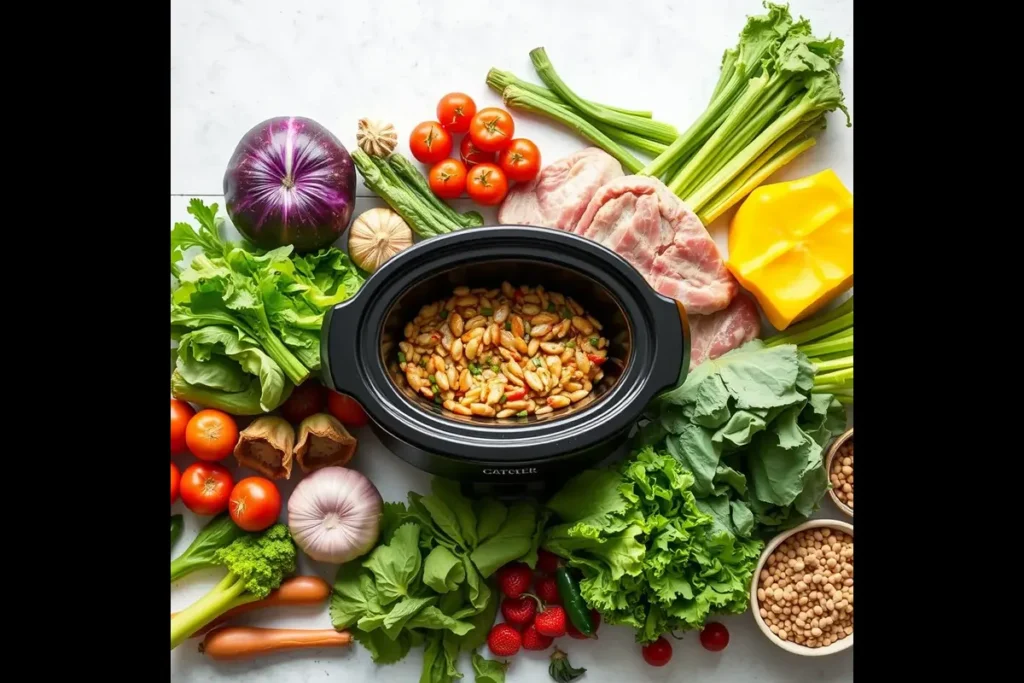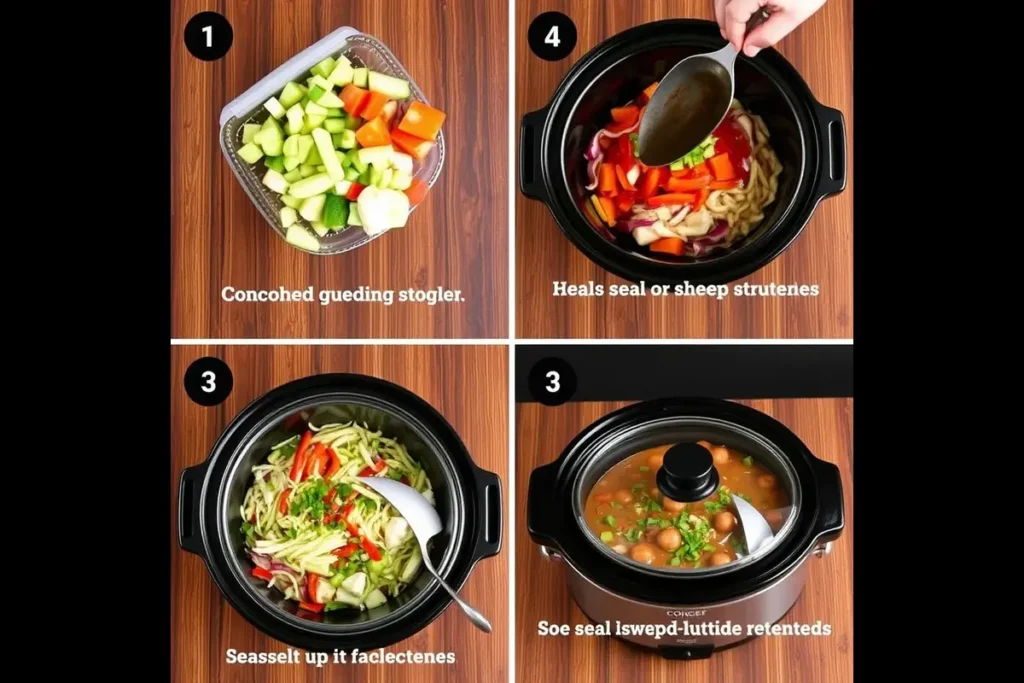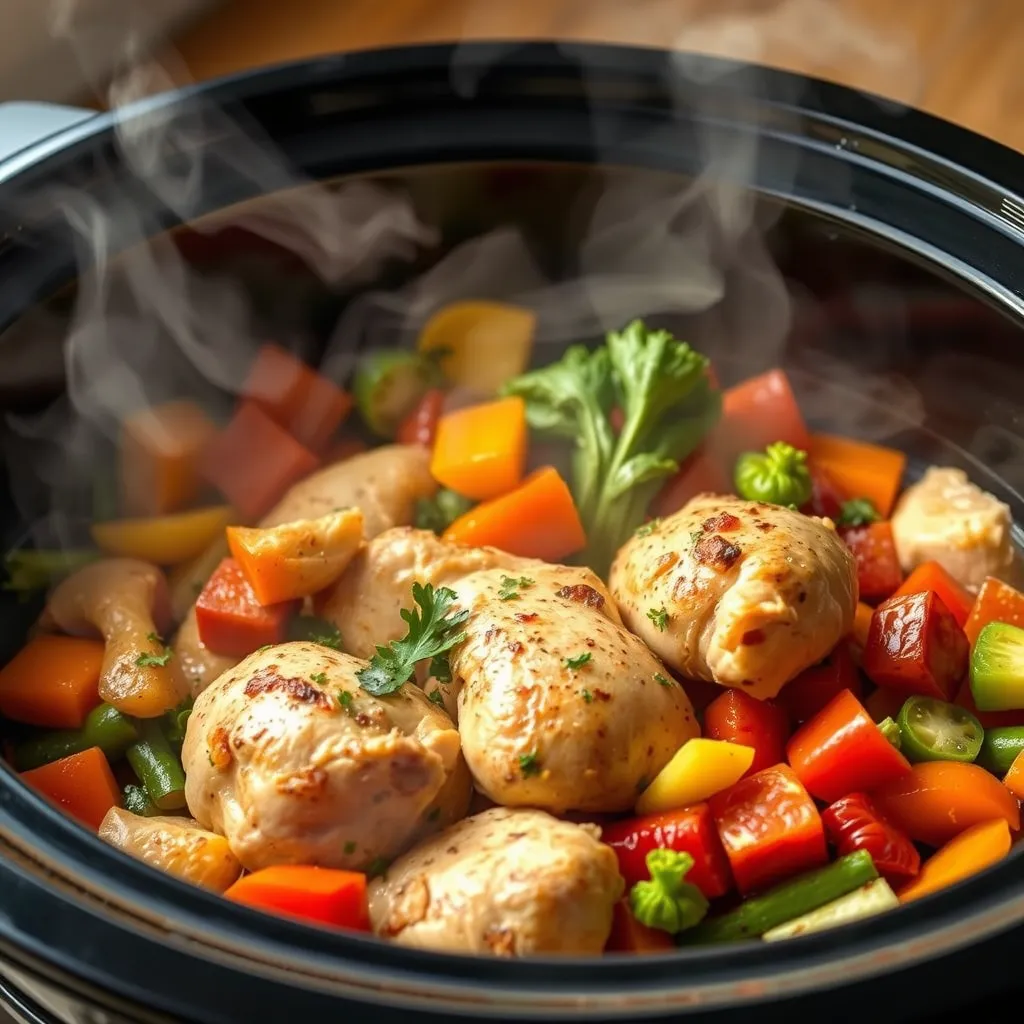Cooking is more than just preparing food; it’s about preserving its nutritional value while enhancing flavors. Slow cookers have become a staple for those seeking convenience and hearty meals. However, many wonder, “Do slow cookers remove nutrients?” This question has sparked debates among health enthusiasts and culinary experts alike. In this article, we’ll uncover the truth behind nutrient retention in slow cookers.
We’ll explore how nutrients are affected during cooking, how slow cookers work, and whether they live up to their reputation as a health-conscious cooking method. Additionally, we’ll provide tips for retaining maximum nutrients and address common concerns surrounding this popular kitchen gadget.
Part 1: How Nutrients Are Lost During Cooking
Common Ways Cooking Affects Nutrient Retention
Heat Sensitivity of Nutrients
Certain nutrients are more delicate than others. Vitamins like Vitamin C and many B vitamins are particularly sensitive to heat and prolonged cooking times. These water-soluble nutrients can degrade when exposed to high temperatures, making the cooking method crucial for preserving their benefits.
Nutrient Loss in Liquids
Another common way nutrients are lost is through leaching into cooking liquids. When foods are boiled, for instance, valuable nutrients may seep into the water, which is often discarded. The good news? Slow cookers use minimal liquid, and the liquid is usually consumed as part of the meal, helping retain these water-soluble nutrients.
Oxidation and Nutrient Degradation
Exposure to air during cooking can also lead to nutrient degradation, particularly for vitamins sensitive to oxygen, like Vitamin C. However, slow cookers typically operate in a sealed environment, which reduces the amount of air exposure and helps preserve these nutrients.
Part 3: The Science of Slow Cooking
How Slow Cookers Work
Low-Temperature Cooking
Slow cookers operate at a consistent, low temperature, typically ranging between 170°F and 280°F (77°C to 137°C). This low-heat mechanism is key to their appeal. Unlike high-heat methods such as frying or grilling, the gentle cooking process minimizes the breakdown of heat-sensitive nutrients. For example, Vitamin A and certain antioxidants are more stable at lower temperatures, allowing them to remain intact throughout the cooking process.
The slow cooking approach also prevents the formation of harmful compounds that can occur with high-heat cooking, like those produced during frying. The result? Meals that are not only flavorful but also healthier.
Moisture Retention
One of the standout features of a slow cooker is its ability to retain moisture. As food cooks, natural juices are released but remain within the pot due to the low evaporation rate. This retained liquid not only enhances the flavor but also preserves water-soluble nutrients such as B vitamins and Vitamin C.
Unlike boiling, where nutrients may leach into the water and get discarded, slow cookers ensure that these liquids are incorporated into the meal. This feature makes slow cookers an excellent option for soups, stews, and casseroles, where every drop of liquid contributes to the dish.
Sealed Environment
The sealed lid design of slow cookers plays a critical role in preserving nutrients. By limiting exposure to air, the slow cooker reduces oxidation, which can degrade vitamins like Vitamin C and folate. Additionally, the tight seal maintains a consistent cooking temperature and ensures even heat distribution, which further aids in nutrient retention.
This enclosed environment also traps steam, keeping the dish moist and reducing the need for added oils or fats. The result is a nutrient-packed meal that’s both wholesome and satisfying.

Part 4: Nutrient Retention in Slow Cookers
Examining Nutritional Retention in Slow Cookers
Vitamins That Are Retained
Certain vitamins thrive in the slow cooking environment. Vitamin A, Vitamin E, and some carotenoids, for example, are fat-soluble nutrients that remain stable under low-heat conditions. These vitamins are essential for maintaining skin health, boosting immunity, and supporting vision.
Moreover, minerals such as potassium, magnesium, and calcium are unaffected by heat, making slow-cooked meals an excellent source of essential minerals.
Comparing Slow Cookers to Other Methods
When comparing slow cookers to other cooking methods, their advantages become clear:
- Boiling: Nutrients often leach into the water, which is typically discarded. Slow cookers, in contrast, retain these liquids.
- Frying: High temperatures can degrade vitamins and create harmful compounds. Slow cooking avoids these risks entirely.
- Steaming: While effective for retaining nutrients, steaming is less versatile than slow cooking, which can handle a variety of ingredients and textures.
The Role of Cooking Liquids in Retaining Nutrients
One of the greatest benefits of slow cookers is their ability to retain water-soluble nutrients. Vitamins like Vitamin C and B vitamins dissolve into the cooking liquid, which is then consumed as part of the dish. Whether it’s a rich stew or a hearty soup, the broth ensures that no nutrients are wasted.
To maximize this benefit, always include the cooking liquid in your final serving. Doing so not only enhances flavor but also ensures you reap the full nutritional benefits of the meal.
Myths About Nutrient Loss in Slow Cookers
Several misconceptions surround nutrient retention in slow cookers. Let’s debunk a few:
- Myth: Slow cooking destroys nutrients due to long cooking times.
- Fact: The low-temperature setting prevents significant nutrient degradation, even over extended periods.
- Myth: Slow cookers don’t preserve water-soluble vitamins.
- Fact: Since the liquid is retained and consumed, these vitamins remain part of the meal.
- Myth: Only fresh ingredients work in slow cookers.
- Fact: While fresh produce is ideal, frozen vegetables and proteins can also retain their nutrients during slow cooking.
Part 5: Factors Influencing Nutrient Retention During Slow Cooking
What Affects Nutrient Retention During Slow Cooking?
Cooking Time and Temperature
The duration and temperature of cooking play a major role in nutrient retention. Heat-sensitive vitamins like Vitamin C and some B vitamins can degrade with prolonged exposure to heat. However, the low temperatures used in slow cookers (170°F–280°F) significantly reduce the risk of nutrient loss compared to boiling or frying.
It’s essential to avoid cooking food for longer than necessary. While extended cooking can tenderize tough cuts of meat or legumes, it may lead to diminishing returns for certain nutrients. To balance tenderness and nutrition, follow the recommended cooking times for each ingredient.
Type of Ingredients Used
Different types of ingredients respond differently to slow cooking:
- Vegetables: While some water-soluble vitamins may leach into the cooking liquid, this can be mitigated by consuming the broth.
- Meats: Proteins, minerals, and fat-soluble vitamins in meats are largely unaffected by slow cooking.
- Legumes: These nutrient-dense ingredients, like lentils and beans, retain their fiber and protein content exceptionally well in slow cookers.
Lid Usage and Moisture Preservation
The lid of a slow cooker is not just a functional component—it’s essential for nutrient retention. Opening the lid during cooking allows steam and heat to escape, disrupting the cooking environment and potentially leading to nutrient loss.
To maximize nutrient retention:
- Avoid opening the lid unnecessarily.
- If you need to check the food, do so quickly to minimize heat and moisture escape.
Part 6: Tips to Maximize Nutritional Retention in Slow Cookers
How to Retain Maximum Nutrients While Slow Cooking
Use Fresh, High-Quality Ingredients
Starting with fresh, nutrient-dense produce sets the foundation for a healthy meal. Fresh vegetables, lean proteins, and whole grains have higher nutrient levels compared to processed or older ingredients. Additionally, opt for organic produce when possible, as it often contains fewer pesticides and more antioxidants.
Avoid Overcooking
Overcooking can compromise the flavor, texture, and nutritional value of your meal.
- Follow recipe guidelines to avoid cooking beyond the recommended time.
- Use timers and slow cooker settings (low or warm) to maintain the perfect balance between tenderness and nutrient preservation.
Incorporate Cooking Liquids
The cooking liquid in slow cooker recipes is a treasure trove of nutrients. Water-soluble vitamins like Vitamin C and B vitamins dissolve into the broth during cooking. To retain these nutrients:
- Always include the liquid in your final dish.
- For soups, stews, and curries, use the broth as a base for serving.
By following these tips, you can enjoy delicious, nutrient-rich meals every time you use your slow cooker.
Part 7: Frequently Asked Questions (FAQs)
Does Slow Cooking Destroy Vitamins?
Not entirely. While heat-sensitive vitamins like Vitamin C and some B vitamins can degrade with prolonged cooking times, the low temperatures in slow cookers minimize this loss compared to high-heat methods like frying. Fat-soluble vitamins, such as Vitamin A, D, and E, are stable under slow-cooking conditions and are largely preserved.
Can Slow Cookers Retain More Nutrients Than Other Methods?
Yes, slow cookers are often superior to other cooking methods in retaining nutrients. Compared to boiling, where nutrients leach into water that may be discarded, slow cookers retain all liquids and their nutrients. Unlike frying, slow cooking avoids exposing food to extreme heat, which can break down essential vitamins and create unhealthy compounds.
What Foods Retain the Most Nutrients in a Slow Cooker?
Certain foods thrive in the slow cooking environment:
Root Vegetables: Carrots, sweet potatoes, and beets retain their natural sweetness and are rich in nutrients like Vitamin A and potassium.
Legumes: Lentils and chickpeas maintain their protein and fiber content exceptionally well.
Meats and Fish: Slow cooking tenderizes proteins while preserving their minerals and fat-soluble vitamins.
Is It Safe to Cook All Vegetables in a Slow Cooker?
Most vegetables are safe and nutritious when cooked in a slow cooker. However, some delicate greens like spinach and kale may lose texture and nutrients if overcooked. For best results, add these at the end of the cooking process. Additionally, avoid slow cooking starchy vegetables like potatoes on their own without adequate liquid, as they can become overly soft or sticky.

Part 8: Do Slow Cookers Remove Nutrients? The Verdict
Slow cookers are a valuable tool for preparing healthy, nutrient-rich meals. By cooking at low temperatures and retaining all cooking liquids, they preserve more nutrients than many traditional methods. While some vitamins may break down due to prolonged cooking times, the overall benefits far outweigh the drawbacks.
To maximize nutritional value, use fresh ingredients, avoid overcooking, and incorporate the cooking liquid into your meals. With these tips, you can enjoy the convenience of slow cooking without compromising on health. So, embrace your slow cooker and relish the ease of making wholesome, flavorful dishes!

